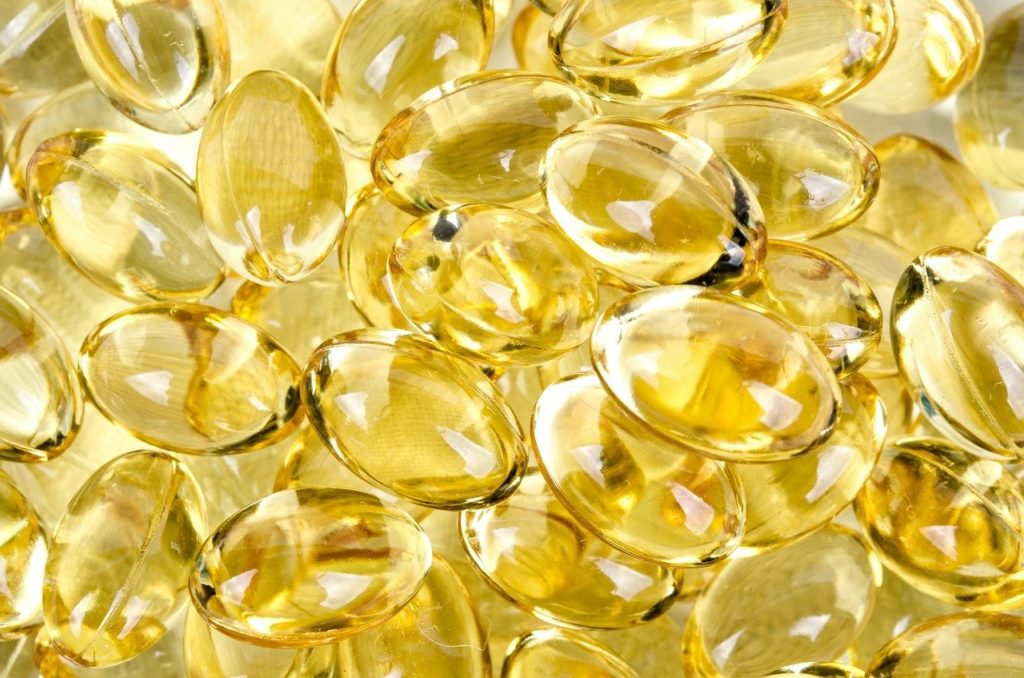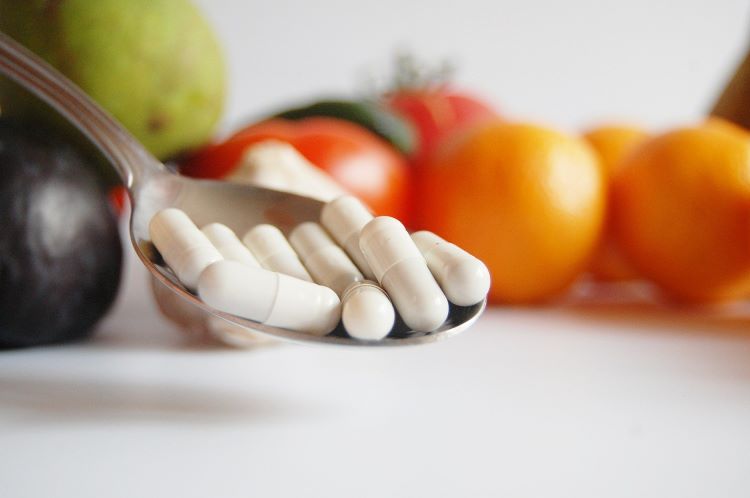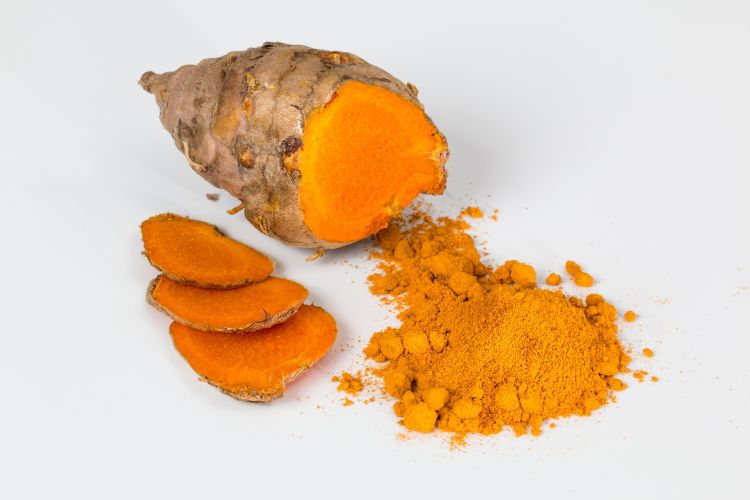With more supplements available than ever before it can be hard to work out which ones are worth taking and which are unnecessary.
Most people can and should get everything they need from a varied and balanced diet, but high-quality natural supplements can offer a useful top-up of essential or beneficial nutrients. When life gets busy, they provide reassurance that your body is getting everything it needs for optimum health.
Why do people take supplements?
Modern supplements don’t just provide essential vitamins and minerals they harness the power of nature to provide a host of benefits including extra energy, improved brainpower, deeper relaxation, better sleep and enhanced gut health.
People take supplements for numerous reasons. Here are some of the most common:
To top up on essential nutrients
The best way to achieve good health is by eating a balanced range of great foods. Except for vitamin D, all your essentials and minerals should ideally be provided by food. However, in some situations, this is easier said than done.
In 2018, research published by Nutritional Insight Limited showed that more and more people are experiencing significant shortfalls in the nutrition they receive from their food. More than 20% of young people were not achieving the recommended amount of minerals such as selenium, magnesium, iron and potassium.
This could be because our hectic lifestyles leave less us with less time to prepare adequately nutritious meals. Or, because fewer nutrients are present in the food we eat. Either way, it’s clear why more people are looking for alternative ways to stay healthy.
With a majority of vitamin and mineral supplements, the research suggests that the benefits are only apparent in people who are deficient. If you already have a good level in your body, you’re unlikely to notice any positive effects. In fact, you will either be passing the vitamin directly out again in your urine or storing it where it could reach toxic levels.

To treat deficiencies caused by other factors
If you don’t get enough of the right vitamins and minerals in your diet you may likely be deficient in some of them. But, this isn’t the only cause of deficiency. Health problems and illnesses can affect how your body absorbs nutrients. In these situations, it’s likely that doctors may prescribe supplements or suggest that you take some to top up the deficit you’ve acquired.
To get a specific benefit
A large portion of modern supplements aren’t designed to treat a deficiency or provide necessary nutrients, they have been designed to convey extra benefits. They could be general feelings of wellbeing, a boost in energy, greater strength, more brainpower or even relief from pain or specific symptoms.
Is it safe to take supplements?
This is a crucial question and the answer is ‘sometimes’. Many supplements contain substances that could be dangerous to some people or to anyone if they are taken in too large an amount. Also, there are thousands of unscrupulous retailers out there who’re happy to take shortcuts to make quick money.
As a result, you must take your time to know exactly what your taking, who you’re getting it from and how it affects you. Here are some tips to help minimise the risk when purchasing and consuming supplements:
1. Only buy from reputable companies. Check places like Trustpilot to find out what previous customers thought. Look for companies that are members of relevant official organisations or have had their products checked by industry bodies like the vegan society and the UK Soil Association.
Find out what safety and quality checks they conduct and find out if they can prove the results. Ideally, ask to see the results of tests carried out by third-party labs. These provide independent verification that rigorous standards have been met.
2. Check the ingredients. Look for products you may be allergic to or for anything artificial that’s been added. The best companies will never add unnecessary additives but let the real ingredients do the talking.
3. Check the amount of each active ingredient. The NHS provides lots of excellent information about how much you should take of vitamins and minerals. Some vitamins and minerals are great for you in the right measure but in too high a measure are toxic.
Look at the amounts in the supplement and determine if they are present at safe levels. This is particularly important if you’re taking several products together. If they contain similar substances, you may accidentally take too much.
4. Never exceed the recommended amount. Follow the instruction on the packet and never take more than is suggested on the packet unless you’ve been advised to do so by your doctor.
5. If you’re on medication, always speak to your doctor before starting any supplement. Even the most benign supplements can cause interactions with medication. Some could alter the effect or create unwanted side effects, but some may just prevent you from properly absorbing the medicine and make it less effective.

How do I know that a supplement will work?
There is never any guarantee that a supplement will do anything. Most supplements are created because there is some evidence linking it to a positive effect of some kind. But this doesn’t guarantee that the same will happen to you.
How substances interact with your body depends a lot on your body as well as the contents of the supplements. Factors like, body mass, body chemistry and health can make a big difference as to what might work and what won’t.
To make it more likely that you will feel an effect it’s necessary to establish that the supplement you’re using contains the correct amount of the active ingredient. If for example, studies showed that a substance was able to produce a safe energy boost when 400mg was taken every day, then it’s unlikely that a 10mg supplement will produce the same effect.
Another thing that can affect whether it works or not is whether or not you’re body can absorb it effectively. Even if you know the supplement has the right amount of ingredients, some supplements are simply not made in a way that will get enough into your body to do any good. Many of the traditional supplements you can think of, like large chalky tablets, contain synthetic ingredients tightly packed together.
It’s unlikely that they will dissolve effectively in your stomach and the synthetic vitamins may not be absorbed properly. Those made with wholefoods mimic the nutrients you get in your diet better and are more likely to be effectively broken down and passed into your blood.
Although these points will help you increase the likelihood a supplement will work, the best way is to take it and see what the effects are. Follow the directions for use and start with a small amount and slowly increase it.
If one supplement doesn’t work for you don’t give up, there may be something else available that will be effective for you. I’ve spent the last few years trying lots of different supplements and some have shown clear results while others haven’t seemed to make much difference.
How to choose which supplements to take
To decide what you’re going to take, you need to do two things:
1. Assess your diet
Start by making a food diary with a food log app. These are great ways to keep a record of what you eat and the good ones will tell you what nutrients you’re getting. This is a good way to find out if there’s anything you may be missing out on.
Another useful way to find out what nutrients you get in your diet is to order an online test (like this one from Thriva). They are blood tests sent through the post and it will tell you if you’re deficient in anything. These are easy to find online and there are lots to choose from.

2. Set lifestyle goals
Take some time to work out what your goals are. Do you want to improve your fitness? Build muscle? Reduce your brain fog? Get a better night’s sleep? Increase your energy?
Once you’ve considered your diet and your goals, you can begin to find some supplements that can add to your nutrition and support your goals. If at any point during this time you have any health concerns, talk to your doctor before starting any supplements.
Some essential supplements to get you started
If you’re still not sure what to take, here is a list of some of the most effective supplements. They cover a broad range of effects and have been selected to cover most aspects of health and wellbeing.
Multivitamins
The right multivitamin can be a great way to ensure that you get a broad range of essential nutrients. Look for a quality product that contains wholefood ingredients where possible. Not all multivitamins are suitable for everyone. Find out as much as you can about your own nutritional needs so you can find one that matches them as closely as possible.
Important things to include in your multivitamin are magnesium, zinc and vitamin D3. Magnesium is involved in vital functions in all areas of your body and deficiency is common, particularly in older people. Zinc is linked to a healthy immune function and is involved in wound healing.
Vitamin D3 is created when your skin is exposed to sunlight; it can also be obtained from foods but it’s with fewer people getting enough time outside it’s a common deficiency and can have a significant negative impact on your health.
You may also be interested to read: The best multivitamins UK, G&G kids rainbow food multivitamin review and Performance Lab’s multivitamin for men review.
Omega-3 fatty acids
These are substances that are essential to a healthy diet and are involved in numerous functions in your body. They are used as an energy source, as a signalling molecule and to form critical structures in your brain and eyes. It is also getting harder to provide enough in your diet. Despite still being an excellent source of omega 3, some studies have found that farmed salmon contains less now than ever before.
Also, if you follow a vegan diet it can be hard to get certain types of omega 3. Foods like soy and flax contain some forms of omega 3 but DHA is a type that is only found in large enough amounts in algae or fish. There are now some excellent vegan omega 3 supplements with all types of omega 3 fatty acids.
Further reading: The best omega 3 supplements UK.

Probiotics
Having the correct balance between good bacteria and harmful bacteria is essential to your health and may reduce the risk factors for some severe conditions. A good probiotic is designed to deliver more good bacteria to your digestive system to ensure that you don’t get a build-up of too much bad bacteria.
When you choose a probiotic you need to find one that will successfully get the live bacteria through the acidic environment in your stomach to colonise your gut. Some supplements do this with enteric coatings which can survive the acid in your stomach and only dissolve later on.
Others do it by suggesting that you take them with a meal. This is the point when your stomach is least acidic and provides the best chance for the supplements to successfully reach your gut.
Taking your probiotics with fibre or finding a supplement that also contains prebiotic fibre means that the bacteria will arrive with their own food source and are more likely to produce a colony.
On this topic, you may also like to explore these articles: Best probiotic supplements UK and Best fibre supplements UK.
Turmeric
This incredible spice comes from a root that has been crucial to traditional medicine for thousands of years. Recent research has uncovered that it has an incredible range of benefits including supporting joint health, reducing inflammation and fighting oxidative damage to your cells.
Look for turmeric supplements that have been prepared to increase the amount of the active compound curcumin. It’s curcumin that has the positive effects and some supplements are standardised to increase curcumin concentration and make them more effective.
Also, if you take turmeric with piperine, which can be found in black pepper, it can increase the amount your body can absorb by up to 2000%.
Read about the best UK turmeric supplements here: Best turmeric supplements UK.

Optional extras:
- Nootropics – These are substances that can boost your brainpower by improving your memory, removing brain fog, increasing focus and reducing stress. There are lots of natural nootropics available including lion’s mane mushroom and ashwagandha. The best nootropic supplements UK
- Sleep supplements – There are numerous supplements available that are used to help you prepare for sleep or improve its quality. If you want support to get a better night’s sleep, first try improving your sleep hygiene. You may also find that exercise, a balanced diet or a good multivitamin help with sleep, but if you’re still struggling to get enough rest, there are several excellent sleep supplements to try. My favourite is Sleep from Performance Lab.
- CBD – This is a non-intoxicating cannabinoid extracted from legal strains of cannabis known as hemp. It’s available in many forms but the most popular and versatile is CBD oil. In 2019, a report commissioned by the Centre for Medical Cannabis estimated that between 4-6 million people in the UK had tried CBD. The World Health Organization said that “CBD is generally well tolerated with a good safety profile.” Research has revealed that CBD can interact with your body via your endocannabinoid system. This is a collection of molecules and receptors found in your central and peripheral nervous system. Numerous studies have linked it to benefits including better quality sleep, reduced anxiety, and an improvement in chronic pain. If you’re interested in finding out more about CBD or buying some of the best oils available in the UK, pay a visit to for the Ageless.

What else can I do to improve my health?
If you’re looking to live a healthier life, supplements are only one of the things you can do. Here are some more things you could try:
Drink plenty of water – Having enough water in your body is crucial to your health. As well as making up 70% of the total mass of every cell in your body, water helps you to digest food properly and to remove toxins from your body.
Meditation – You may be surprised at how effective meditation can be for your general health and well-being. I’ve used meditation regularly for the last few years and at times I’ve found its effect to easily equal that of any of the supplements on this list. It dramatically improved my mental health and I also found my energy and focus returning too.
When you start meditation, you’ll likely struggle to concentrate but if you use an app like headspace, you can be guided through the early stages. Like any skill, with meditation the more you practice the better you are at it and the greater the effect.
Eat a balanced and varied diet – Getting a broad range of foods including all the food groups is an important step in your journey towards better health. A good rule of thumb is to ‘eat the rainbow’. Adding great foods of different colours will improve the range of fibre, vitamins, minerals and antioxidants that you consume.
Yoga – The NHS recommends getting thirty minutes of moderate exercise for five days a week, or 75 minutes of vigorous activity per week. Yoga is a great way to get active and it also provides a broad range of benefits including strength, flexibility, better circulation and improved energy and vitality.

Listen to your body – Your body is incredibly intelligent and will often give you clear signs if something is wrong or if you need to make a change. Meditation and yoga will help you to get in tune with some of the messages your body sends you, but often they can be fairly obvious.
Start by responding to the sensations of hunger and fullness. These are useful guides to support when you need to eat and sometimes it will even help you decide what to eat.
Conclusion
Choosing supplements can be a daunting task but you don’t have to get it right all at once. It’s taken me several years to find a supplement routine that suits me. I didn’t get it right straight away, but even the wrong turns taught me lessons and helped me on my journey to better health.
Start by choosing one of the items suggested above and then if necessary, slowly add other elements until you get the results you want.
My Supplement Recommendations
These are products that I currently use and enthusiastically recommend:
Multivitamin – Nutrigenesis Multi for Men or Nutrigenesis for Women. Performance Lab use their patented Nutrigenesis technique to provide a range of vitamins and minerals in their most effective form. Read my review.
Nootropic – Mind Lab Pro contains eleven natural nootropics that have been proven to support cognitive function and brain health. Read my review.
Collagen – Edible Health Bovine Collagen. This excellent bovine collagen powder is completely tasteless and absorbs quickly into any liquid. It’s third-party lab tested and provides 13g of collagen per serving. Read my review.
Turmeric – VitaBright Organic Turmeric with Ginger and Black Pepper. These turmeric capsules are organic, effective and affordable. They include black pepper to enhance curcumin absorption and ginger to provide additional useful benefits. Read my review.
Incredible value – G&G Vitamin 28 day packs This is the most affordable way to buy supplements in the UK. One tub holds 28 daily packs of up to 11 different vitamins, minerals or food supplements.
RELATED READING
If you’re looking for supplements, vitamins, minerals or just some helpful information, we have some other lists that you may find useful.
- All vitamin and mineral lists
- Best Collagen Supplements UK
- Turmeric Supplements
- Best Ashwagandha
- Best Multivitamins
- Nootropic Supplements
- Best Mushroom Supplements
- Greens Blend Supplements UK
This site is a participant in affiliate advertising programs designed to provide a means for sites to earn advertising fees by advertising and linking to products and services. We participate in programs from Amazon, eBay, CJ, Awin, Viglink and other sites. We are compensated for referring traffic and business to companies linked to on this site.

